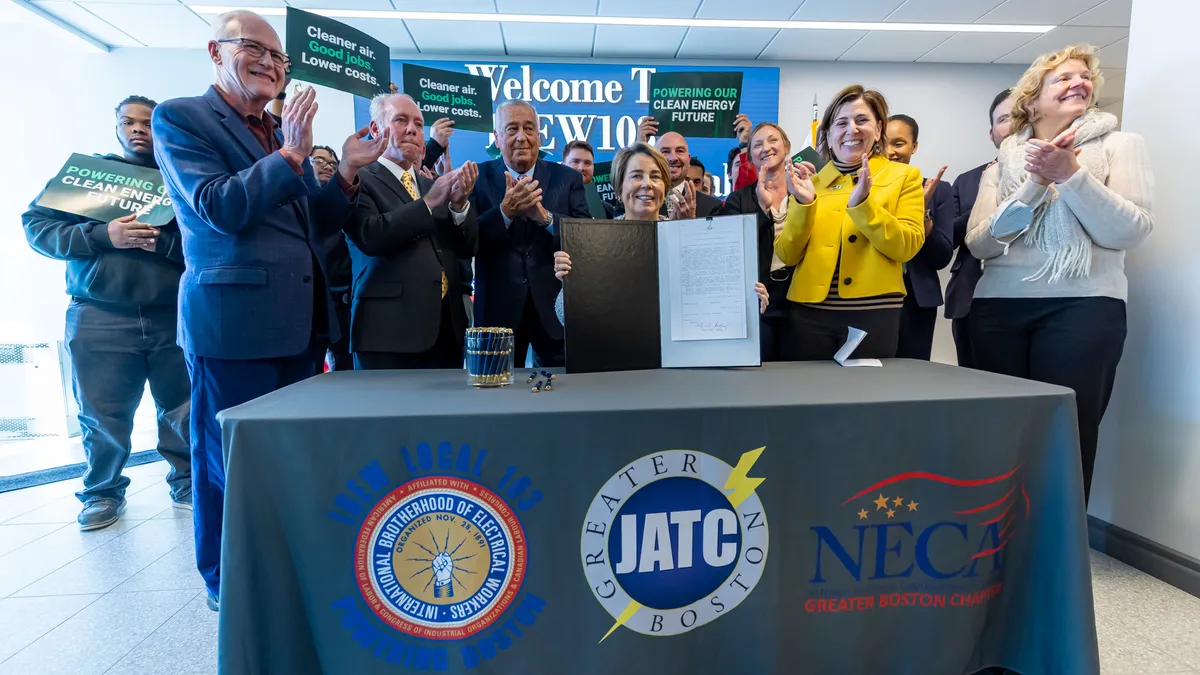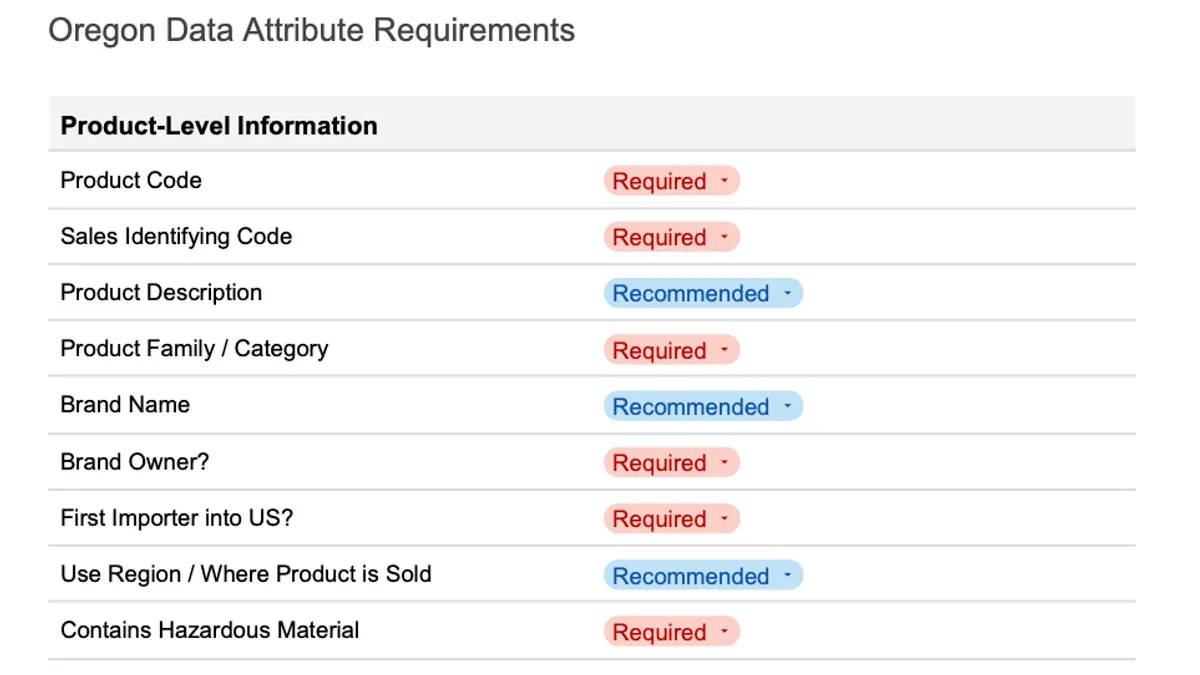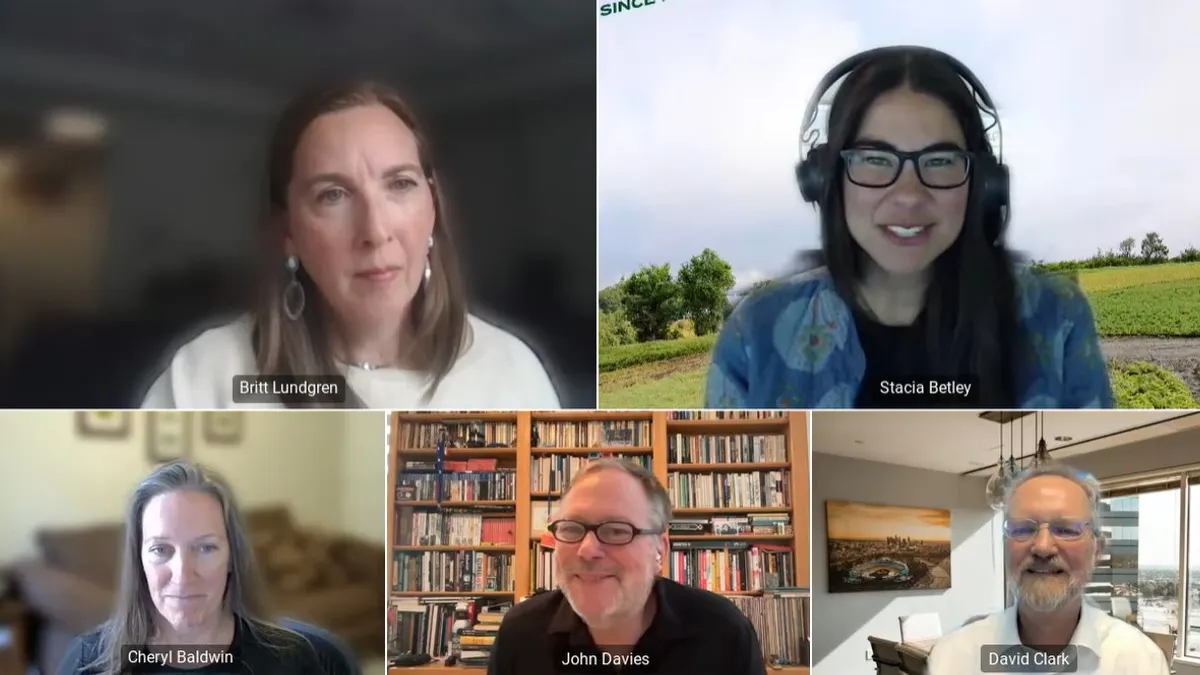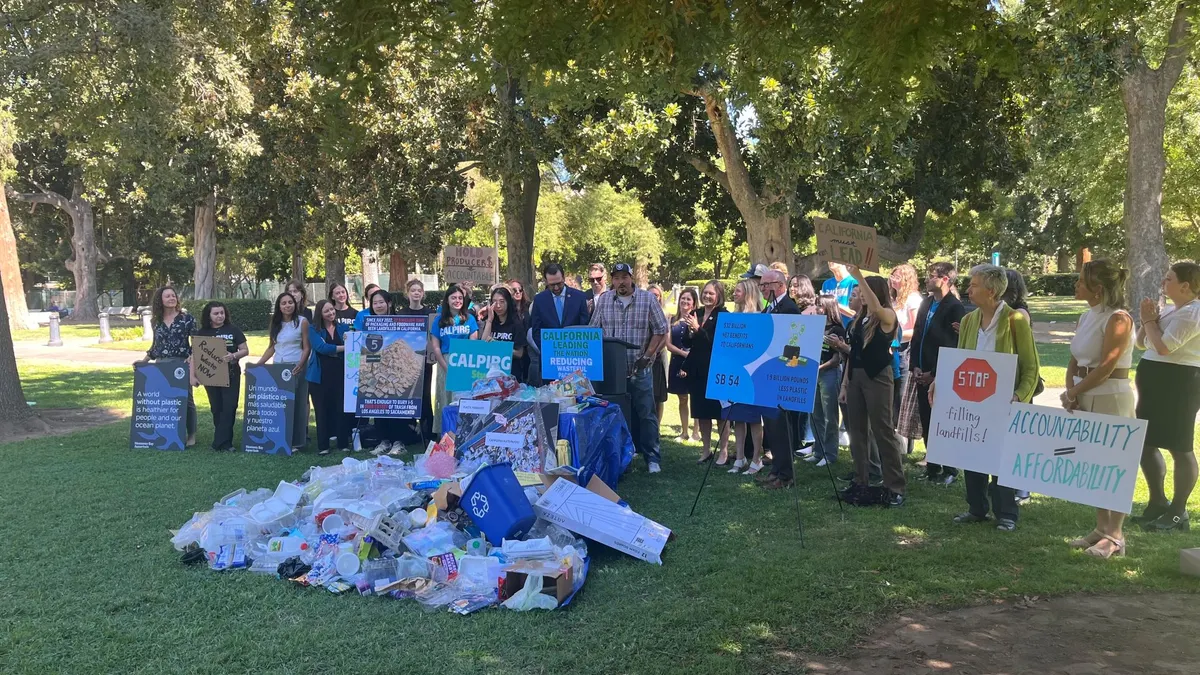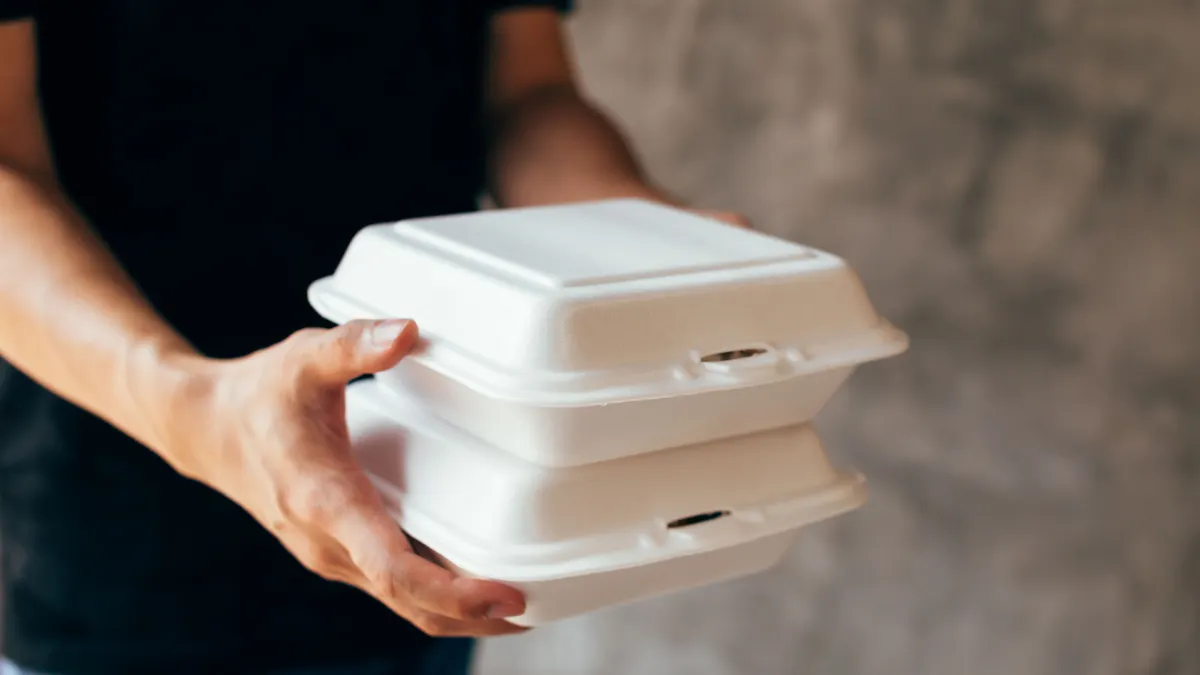Massachusetts could advance long-awaited discussions about extended producer responsibility due to language tucked into a broader climate law recently signed by Gov. Maura Healey.
The law calls for a special legislative commission on EPR for categories including “paint, mattresses, electronics, lithium-ion batteries, plastics and other packaging.” The commission is expected to solicit public comment, meet at least four times and share “initial recommendations and related findings” with relevant legislative committees by Jan. 15, 2026.
The 20-member group will be chaired by the Massachusetts Department of Environmental Protection’s commissioner or a designee. It will include a range of government officials and legislators, recycling and packaging industry representatives and other nonprofits such as environmental justice groups.
Its recommendations will cover multiple topics:
- A structure for each product and packaging category that includes collection, processing and financial responsibility
- Cost effects for residential curbside collection and transfer station operators, as well as processing and management costs for different materials
- The role of “material reduction, reuse and lifecycle extensions” for different products and packaging
- Effects on waste generation and contamination reduction
EPR for packaging laws have been passed in five states, including nearby Maine. Illinois and Maryland are also in the process of developing their own EPR for packaging frameworks that could lead to future laws.
Years of discussion
Massachusetts is viewed as a relative outlier among its Northeast neighbors for not passing any notable waste or recycling legislation in years.
MassDEP, which has taken its own action via disposal bans in multiple categories, has a goal to reduce waste disposal to 4 million tons per year by 2030. A recent progress report found 6.16 million tons were disposed in 2023, up from a baseline of 5.7 million tons in 2018.
Scott Cassel, CEO of the Product Stewardship Institute, said the state’s solid waste management plan identified EPR as a possible strategy over 20 years ago when he worked at MassDEP.
"It’s great to see EPR movement in Massachusetts,” he said. "I think it's ironic that it has taken this long.”
The state legislature saw a host of waste and recycling bills introduced during its current two-year session, which is set to end this month, but none made it through.
In its version of the state climate bill, the Massachusetts Senate did include language to update the state’s bottle bill, but that didn’t survive negotiations with the House. The Senate passed a bill in June that would have established an EPR commission for packaging, as well as bans or limits on certain plastic products, but it didn’t advance in the House. Other bills related to EPR for paint, mattresses and packaging largely stalled in committee.
Cassel said EPR for paint, which is now in place across 12 states and the District of Columbia, has been floated in the Massachusetts legislature for about a decade and he’s “flabbergasted” that it hasn’t happened yet. Groups such as the Massachusetts Product Stewardship Council — a committee of MassRecycle — actively pushed to get a paint bill passed this year, with support from key retailers.
"We're very pleased the governor has passed the climate bill to include the EPR commission,” said Phil Goddard, acting chair of MassPSC. “We see this as an excellent opportunity to bring together stakeholders to focus attention around much-needed EPR in Massachusetts and to work with the legislature."
Mattresses — which are also covered by EPR laws in other states — are somewhat more complicated due to a state disposal ban that took effect in 2022, among other factors. This has led to elevated costs for local governments and mattress recyclers.
The commission’s focus on lithium-ion batteries is appealing to groups such as the National Waste & Recycling Association, which recently backed a Illinois battery EPR law due to fire risks for industry operators. NWRA is less pleased by the focus on packaging.
“We support the goals of increased circularity and improved recovery and have continually supported EPR programs that focus on hard to manage items like batteries, mattresses, paint and tires,” said Lew Dubuque, NWRA’s vice president of chapter relations in the Northeast, via email. “However, case studies show that packaging EPR programs do not achieve improved recovery rates of recyclables in already well-established programs similar to those in Massachusetts.”
Looking ahead
MassDEP confirmed that it’s currently working to fill the commission and start convening in “early 2025.”
Cassel said it’s reasonable for the EPR commission to complete its work in a year or less and develop any resulting legislation quickly by using available models from organizations such as PSI and others.
Massachusetts’ two-year legislative calendar means any bills spurred by the commimssion could pass as late as July 2026, when the formal session ends, or even later that year if the legislature remains active during informal session.
But EPR won’t be the only waste and recycling focus area in Massachusetts policy discussions during the next session.
"It is fine that the state is studying extended producer responsibility for these key materials,” said Kirstie Pecci, executive director of Just Zero. “But if we're trying to improve our recycling programs, if we're trying to achieve zero waste, one of the best things that the legislature can do is modernize our existing bottle bill."
Pecci said the Plastic Free Mass Coalition, which includes an estimated 40 groups, plans to focus on updating the bottle bill, as well as banning certain polystyrene foam products and plastic grocery bags.
Massachusetts had the lowest redemption rate among bottle bill states in the country during 2023. Updating the law has has long been a contentious issue for recyclers, retailers and the beverage industry.
State Sen. Cindy Creem recently sent a letter to MassDEP clarifying that the bottle bill falls outside the commission’s scope. Garrett Casey, Creem’s policy director and counsel, confirmed via email that “beverage containers were intentionally excluded from the purview of the EPR commission so that reforms to the existing bottle deposit law could move forward on a shorter timeline.”
Rep. Michelle Ciccolo, co-chair of the legislature’s Zero Waste Caucus, said during a recent Circular Cities Week event that she’s seeing momentum build in the legislature for recycling and reuse issues. While it’s been harder to get smaller bills passed, Ciccolo said she hoped that policies such as the bottle bill update get more traction and also noted that support from the administration was important to enacting any future changes.
"We tend to package things into big bills because that's the easiest way to make things move forward,” she said. “It's not just about passing policy, it's often making sure that there's funding to implement the policy.”
Ciccolo said the Healey administration, which took office in 2023, has been “great” to work with so far. She also previewed the potential for recycling policies to be included in other upcoming legislation.
"We've met with all of her cabinet secretaries and they are very enthusiastic about this,” said Ciccolo. “Because we have an environmental bond bill coming in January, I'm very hopeful that some of these policies can be worked into that.”



